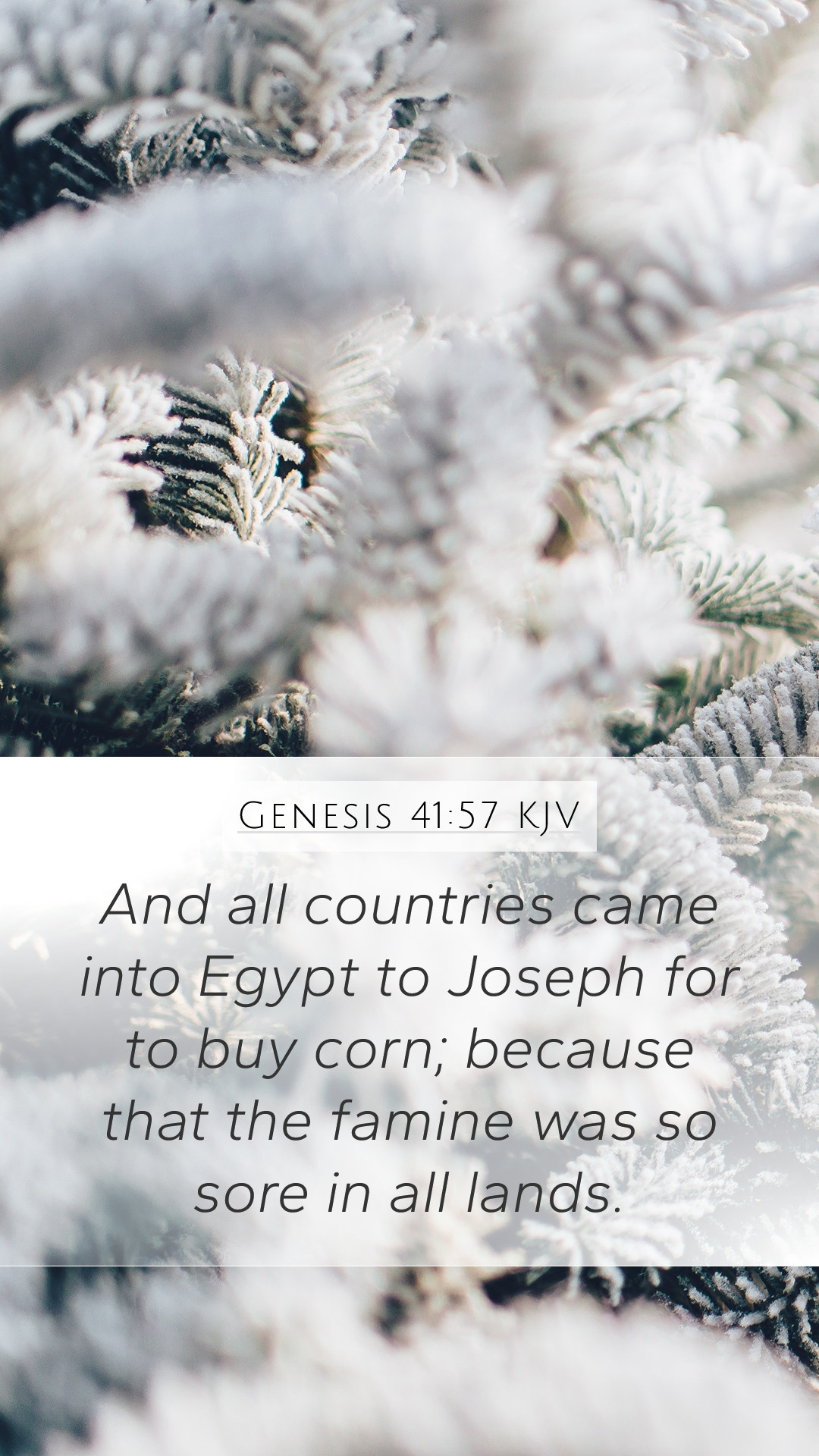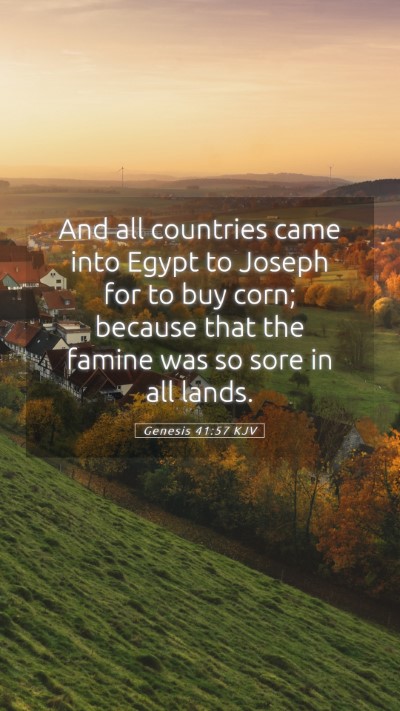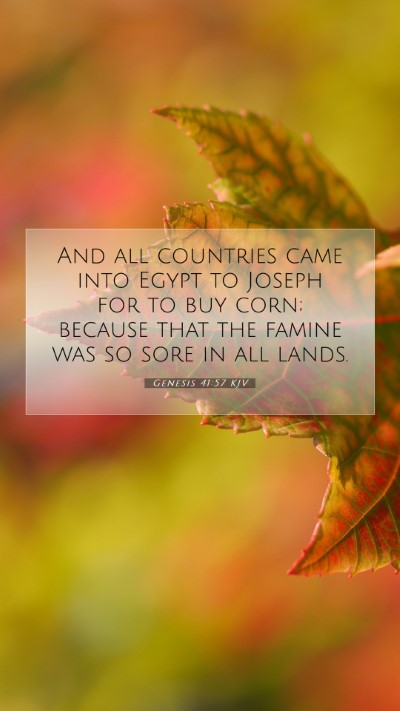Understanding Genesis 41:57
Bible Verse: Genesis 41:57 - "And all countries came into Egypt to Joseph for to buy corn; because that the famine was so sore in all lands."
This verse concludes the narrative concerning Joseph's rise to power in Egypt during a time of famine. It holds deep meanings and interpretations that aid in understanding the broader biblical context and themes.
Bible Verse Meaning
The essence of Genesis 41:57 is built around the importance of Joseph’s wisdom and foresight. After interpreting Pharaoh's dreams, Joseph was appointed to manage the grain during the seven years of plenty, ensuring that the people would have sustenance during the impending famine. His strategic planning and execution brought not only survival to Egypt but also to surrounding nations.
Insights from Public Domain Commentaries
-
Matthew Henry
Matthew Henry emphasizes the divine providence at work in Joseph's life and how his elevation to power served a broader purpose. The famine had affected all regions, and the countries coming to Egypt signifies a fulfillment of God's plan, showing how God's chosen servant became a source of life for many. Henry notes that this illustrates how God's preparations often extend beyond immediate needs to serve the requirements of others in a time of crisis.
-
Albert Barnes
Albert Barnes focuses on the widespread impact of the famine, highlighting that Joseph's management policies not only provided for Egypt but attracted other nations to seek assistance. This interaction highlights the significance of God's blessings on Joseph, as through him, both Egypt and foreign nations benefitted. Barnes suggests that this can be seen as a metaphor for the spiritual sustenance that God provides through His prophets and His word.
-
Adam Clarke
Adam Clarke expands on the severity of the famine referenced in this verse; he notes how the global nature of the crisis underscores the extraordinary role Joseph played. Clarke indicates that the need for grain symbolizes the spiritual famine that often afflicts humanity—pointing to how the faithful, like Joseph, should respond to the needs of others. He further ties the narrative towards highlighting the preeminence of God's servants in times of crisis, showing their responsibility to be resourceful and compassionate.
Thematic Elements
Genesis 41:57 encapsulates several key themes:
- Divine Providence: Joseph's rise and the subsequent famine highlight the notion that God orchestrates events for a greater good.
- Leadership and Wisdom: Joseph’s strategic planning serves as a model for effective leadership and resource management during times of crisis.
- Community and Cooperation: The interaction between Egypt and other nations implies the need for collaboration in overcoming communal challenges.
Cross References
- Genesis 41:46: Joseph appointed over the land of Egypt.
- Genesis 42:1-3: Jacob sends his sons to Egypt to buy grain.
- Acts 7:12: Stephen references Joseph during his speech.
Application of Genesis 41:57
The teachings extracted from this verse have practical implications for today. The way Joseph managed resources in preparation for a crisis serves as a profound lesson. In a world filled with uncertainties, it encourages individuals and leaders alike to act prudently and prepare for unforeseen challenges.
Furthermore, this scripture can inspire us to extend compassion to others, as Joseph did, fostering a sense of community where we support those in need during difficult times.
Conclusion
In summary, Genesis 41:57 provides rich insights into God's providence, the importance of wise leadership, and the necessity of mutual assistance. Analyzing this verse through the commentary of great theologians allows for a deeper understanding of its meaning, implications, and relevance in our contemporary lives.


